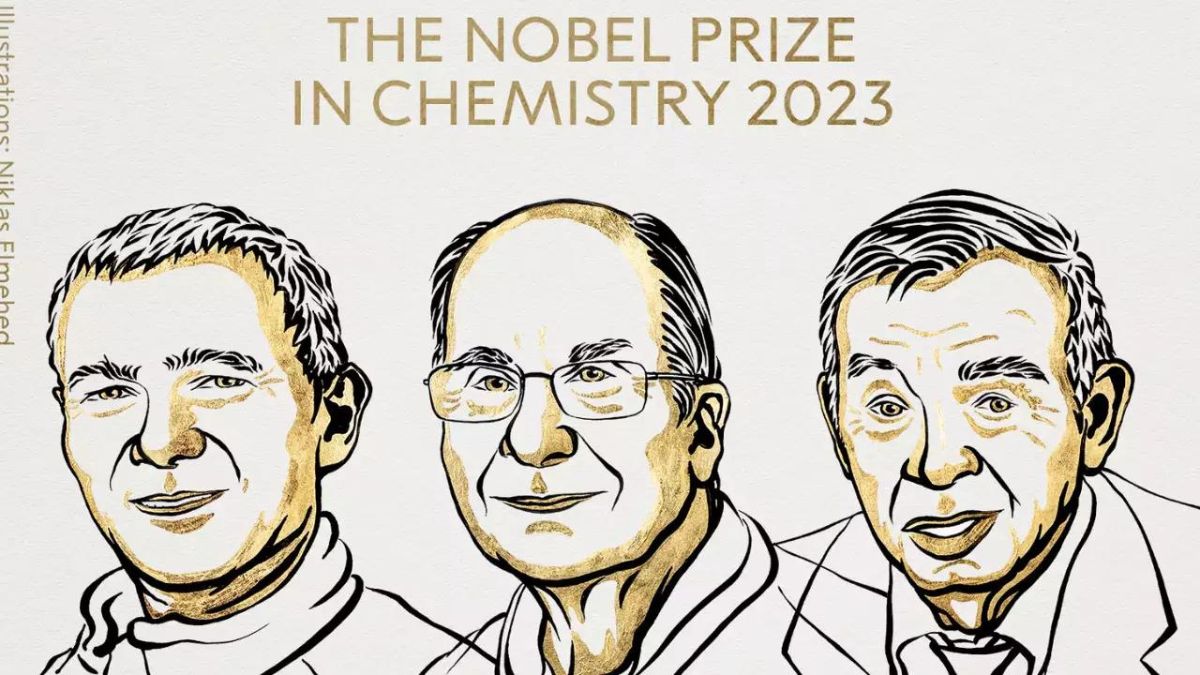Scientists Moungi Bawendi, Louis Brus and Alexei Ekimov won the 2023 Nobel Prize in Chemistry for "the discovery and synthesis of quantum dots", The Royal Swedish Academy, announced on a social media post. According to the statement released by the award-giving body, the rewards were given as these scientists were involved in the discovery and development of quantum dots.
These nanoparticles are "very tiny" that their size determines their properties. These smallest components of nanotechnology now spread their light from televisions and LED lamps, and can also guide surgeons when they remove tumour tissue, among many other things.
Why Moungi Bawendi, Louis Brus, and Alexei Ekimov are chosen for the prestigious award?
The award-giving body underscores that everyone who studies chemistry learns that an element’s properties are governed by how many electrons it has. However, when matter shrinks to nano-dimensions quantum phenomena arise; these are governed by the size of the matter. The Nobel Laureates in Chemistry 2023 have succeeded in producing particles so small that their properties are determined by quantum phenomena. The particles, which are called quantum dots, are now of great importance in nanotechnology.

“Quantum dots have many fascinating and unusual properties. Importantly, they have different colours depending on their size,” says Johan Åqvist, Chair of the Nobel Committee for Chemistry.
“Quantum dots have many fascinating and unusual properties. Importantly, they have different colours depending on their size," says Johan Aqvist, Chair of the Nobel Committee for Chemistry.
Physicists had long known that in theory, size-dependent quantum effects could arise in nanoparticles, but at that time it was almost impossible to sculpt in nano dimensions. Therefore, few people believed that this knowledge would be put to practical use.

Role of scientists in shaping LED lamps
However, in the early 1980s, Alexei Ekimov succeeded in creating size-dependent quantum effects in coloured glass. The colour came from nanoparticles of copper chloride and Ekimov demonstrated that the particle size affected the colour of the glass via quantum effects.
A few years later, Louis Brus was the first scientist in the world to prove size-dependent quantum effects in particles floating freely in a fluid.


In 1993, Moungi Bawendi revolutionised the chemical production of quantum dots, resulting in almost perfect particles. This high quality was necessary for them to be utilised in applications.
Quantum dots now illuminate computer monitors and television screens based on QLED technology. They also add nuance to the light of some LED lamps, and biochemists and doctors use them to map biological tissue.
Quantum dots are thus bringing the greatest benefit to humankind. Researchers believe that in the future they could contribute to flexible electronics, tiny sensors, thinner solar cells and encrypted quantum communication – so we have just started exploring the potential of these tiny particles.
Also Read: Pierre Agostini, Ferenc Krausz and Anne L'Huillier awarded Nobel Prize for Physics
